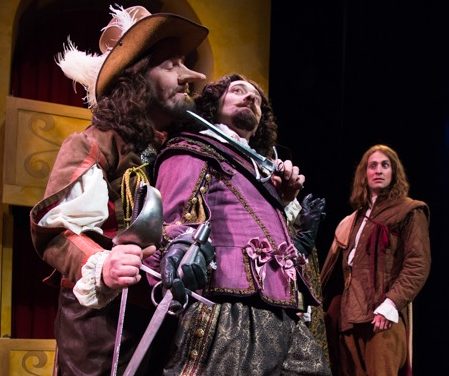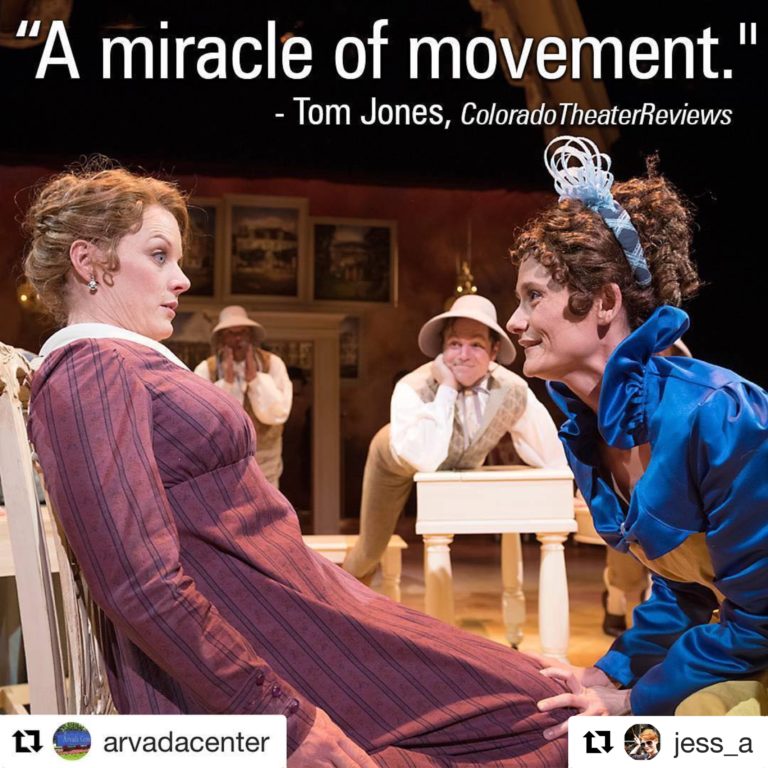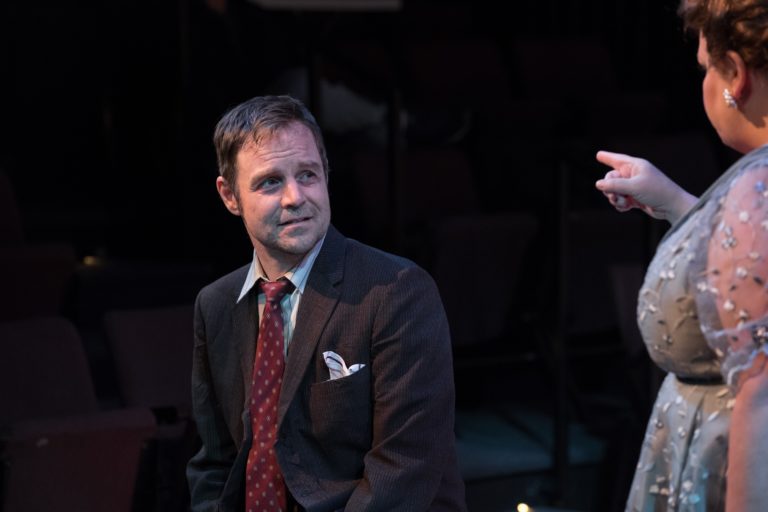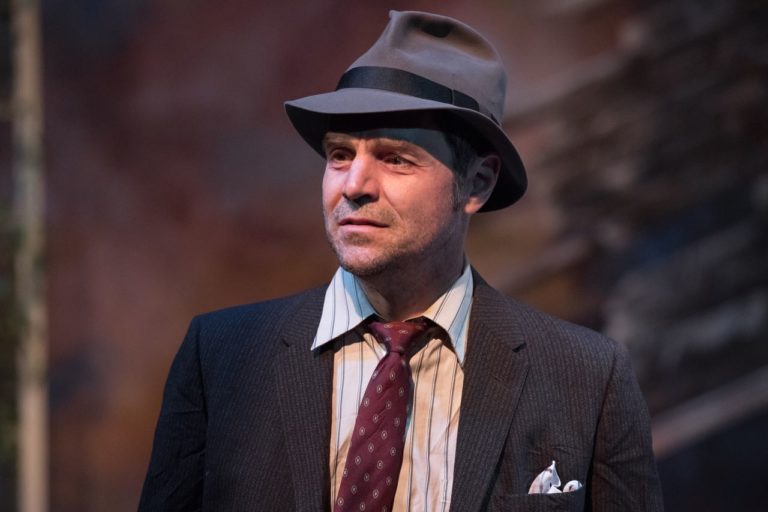Review: Boulder Ensemble’s Cyrano Is Ahead by a Nose at Lone Tree Arts
By Juliet Whitman, WESTWORD
Edmond Rostand’s 1897 Cyrano de Bergerac is a big, romantic beast of a play, written in poetic couplets, featuring a love as doomed and all-encompassing as any in literature — that of Romeo and Juliet, or Tristan and Isolde — though it doesn’t end in a lovers’ suicide. The story includes duels in the shadows and a great looming battle, Catholicism and death and a handful of plot twists. Most important, there’s a larger-than-life hero: Cyrano is a wit, a swordsman and poet, ridiculously brave, profoundly faithful — to his lady as well as his country — but made ugly, at least in his own eyes, by a huge nose. The play speaks of artifice and reality; it celebrates true, enduring and self-sacrificing love.
Convinced that he’s too ugly to ever win his beautiful second cousin, Roxane, Cyrano chooses to support the courtship of a handsome fellow soldier, Christian. Roxane loves poetry. Christian’s a bit of a dodo. So Cyrano lends his creativity and poetic tongue to Christian, standing in the shadows and speaking for him when he courts Roxane on her balcony, sending her letters signed with Christian’s name.
Michael Hollinger and Aaron Posner, two of our most interesting and talented contemporary playwrights, undertook a revision that they named simply Cyrano, which premiered in 2011. The Boulder Ensemble Theatre Company had previously presented Hollinger’s An Empty Plate at the Cafe du Grand Boeuf and his Ghost Writer, as well as Posner’s Stupid Fucking Bird, at its usual home at the Dairy Arts Center, and it’s now mounting Cyrano at the Lone Tree Arts Center. Hollinger, who did the translating, dropped the rhyme for this version, and the script is a lot shorter than the original one; the plot has been pruned and a host of colorful characters reduced to a cast of nine, with most actors playing multiple roles. The action is framed by a kind of prologue in which the audience is asked to “let one man stand in for ten” and told, “We begin — as we always begin — in the theater.”
A classic reduced from huge and all-encompassing to smaller and more limited? An introduction reminding us that what we’re seeing is artificial? From this I expected perhaps more focus on language than action and/or more subtle and contemporary character development. Hollinger is a brilliant writer, and the language often does triumph: When Cyrano, in a fine performance by Stephen Weitz (Rebecca Remaly, BETC co-founder and Weitz’s wife, directs), speaks of his love and longing, his heartbreak feels real and penetrating. But the other characters remain somewhat two-dimensional. While Adrian Egolf’s Roxane is lively and charming, she does not appear to mature from an impetuous girl carried away by the sight of a handsome soldier to the sadder and wiser woman who finally understands — too late — what love is.
While the scope is smaller, there’s still some exciting action. Since the Dairy Arts Center is being renovated, BETC is staging this show at the much larger Lone Tree. This allows for some terrific swordfights, staged by fightmeister Geoffrey Kent, but the space lacks the Dairy’s intimacy, which might have been more fitting for this new version of Cyrano. Sometimes the set seems dwarfed by the stage, a group of discrete set pieces rather than an organic whole. There are other issues, too. The costumes are pure period, without any tweaking or modernization, and things can get confusing with actors playing multiple roles; you just seem to be watching a group of guys in big wigs and body-smothering outfits milling around the stage. And while the speech — that crucial element — is quite comprehensible in terms of sound, the amplification gives it an unwelcome echoey quality.
Yet this ambitious project has much to applaud. In addition to Weitz, who convinces as both fighter and lover, and Egolf, you get Sammie Joe Kinnett in a hilarious turn as Roxane’s nurse. There’s lots of style and swashbuckling. The first act is swift, filled with surprises and often very funny; the quiet ending evokes some fairly profound thoughts on the meaning of love and the way it changes through a lifetime. This Cyrano often hits home, not just with his sword — and where the show misses, it’s only by a nose.




